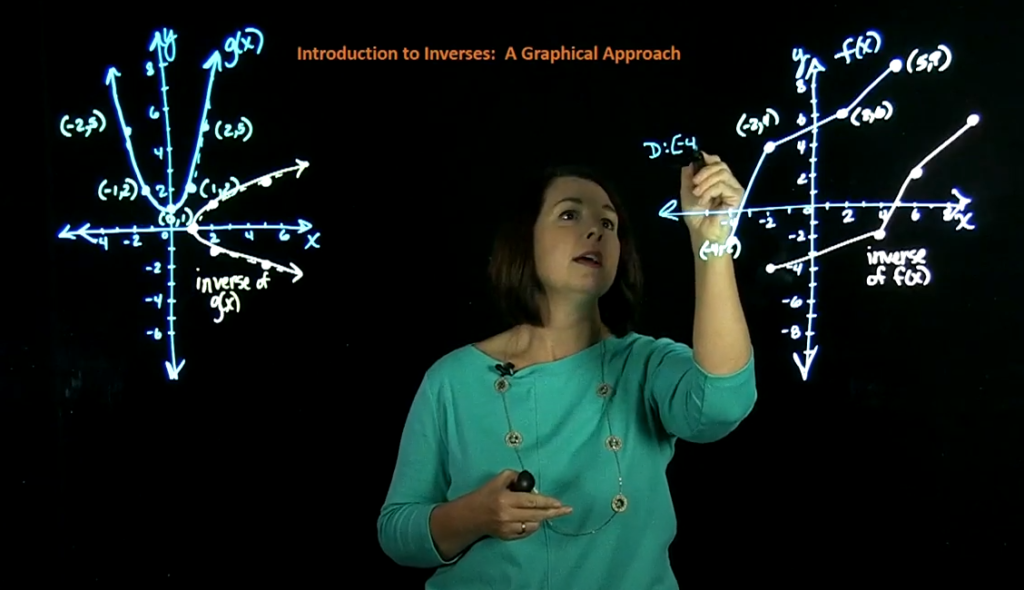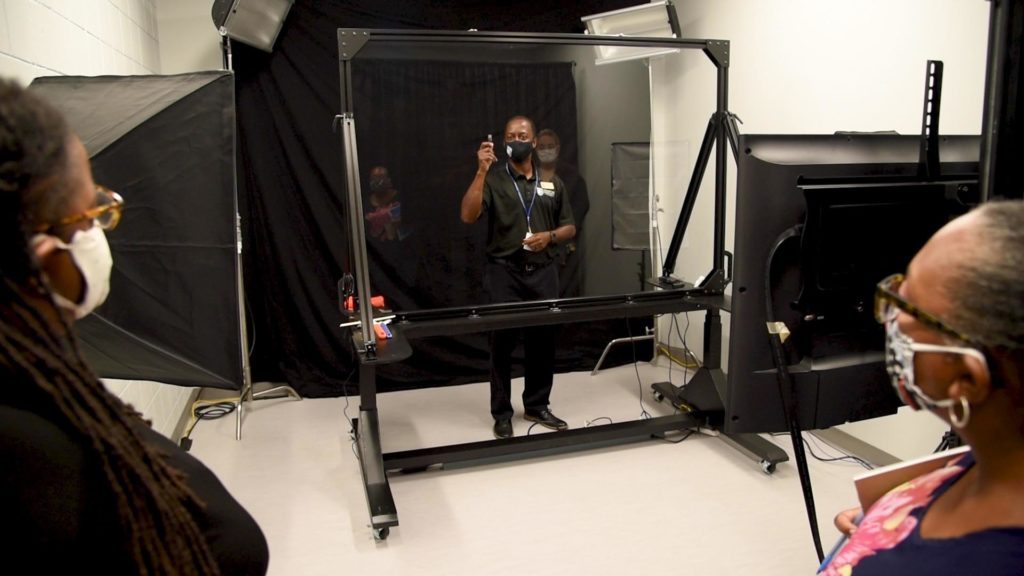With the majority of schools having gone completely virtual this year, conversations about online learning have skyrocketed. In the community college space, administrators and faculty have had to get increasingly creative to transfer certain hands-on programs to the screen. One school in Smithfield is at the forefront of these digital instruction innovations. Johnston Community College (JCC) is partnering with local public high schools to help teachers create more engaging virtual content.
Johnston Community College is no stranger to online instruction. In fact, they have been teaching virtually since 1997. This came to their advantage this past spring, when the pandemic forced schools into virtual learning. The Jaguar Offices of Learning Technologies (JOLT) offers a host of learning technology services for students, staff, and faculty at JCC. One of these services is particularly popular these days — the lightboard.
From white board to lightboard
“It’s challenging to translate your seated class to online,” said Dawn Dixon, the associate vice president of educational technologies at JCC. Between becoming digitally proficient at teaching and creating engaging lessons to deliver through a computer, teachers have a tall order in “normal” times and an even taller order this fall.
Imagine trying to teach a class over Zoom. As a teacher, you’re used to drawing on a whiteboard to explain your lessons and give examples. However, that act isn’t easily translatable to a screen.
That’s where the lightboard comes in. It’s a piece of technology that allows teachers to write on “the board” without having to have a physical board behind them. When a teacher writes on the lightboard, it automatically inverts whatever is drawn on it and projects it to the viewer.


This type of reverse technology isn’t unique to JCC. Many of these smart boards can be found in the consumer market, but at a steep price. JCC didn’t buy their lightboard; they built it.
“It was built on our campus by our students,” said Dixon.
The college paid for the materials, but the engineering students on campus did all of the heavy lifting. The students also wanted to make sure the technology was inclusive, so they automated it to comply with ADA regulations.


“If someone needs it in a wheelchair, they could move the glass up and down to accommodate their height standing behind it. They added on to it and made it completely ADA,” said Dixon.
The lightboard is one of the most popular tools utilized in STUDIO T (Specialized Training Unit for the Development of Innovative Online Teaching), a one-stop instructional design shop, according to a press release by the school. “We have the opportunity to take a few steps back and help people create really engaging content,” said Dixon. In a time where teachers are feeling an urgency to teach effectively on a virtual platform, JCC is happy they can be of service.
The inaugural cohort
With virtual learning in high demand, JCC decided to expand its offerings through JOLT. While this effort has been in the works for a couple of years, its launch comes at a critical time for the community. This year, JOLT welcomes its first cohort of students who are also teachers. The cohort is composed of teachers from the two public high schools housed on JCC’s campus — the Early College Academy (ECA) and the Career & Technical Leadership Academy (CTLA).
The cohort will have the option to earn a BRITE certificate. BRITE stands for Basic Requirements for Instructional Technology Effectiveness. The purpose of the certification is to help instructors with online pedagogy and teach them how to utilize the instructional technology tools to enhance their online classes.
“Some of their homework for some of the learning modules in the certification will be to go in and make a lightboard module for their discipline that then they can use in their class,” Dixon said.
The cohort can begin working towards their BRITE certificates in September.
A vision of collaboration
The first two high schools JOLT is working with are on JCC’s campus, but they don’t want to stop there.
“We’re just really excited to be able to partner with Johnson County Public Schools. We have a large dual admission and dual enrollment program. So we have a lot of high school students — juniors and seniors who take the community college classes. So it’s helpful that their high school teachers are also familiar and using some of the same tools to create content. It just feels more seamless.”
They hope that they will be able to expand their program to include more Johnston County Public Schools in the future. After all, this project was built out of a drive to serve.
“I think it really was our desire to support our community.”
To learn more about JOLT and JCC’s efforts, click here.




